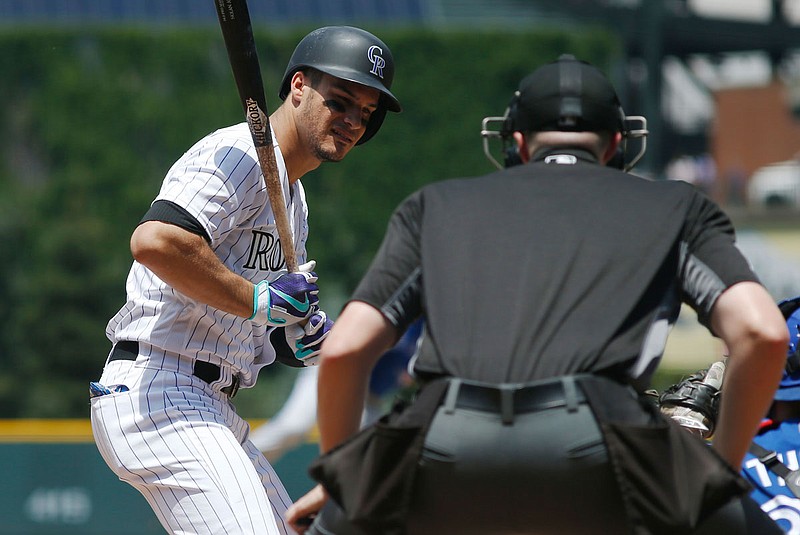If you think the Astros are taking a lot of heat for their cheating scandal, just wait until the baseball world has robotic umpires to deal with.
I'm looking forward to the first time a Major League Baseball manager has to shield himself from Terminator-like laser beams coming at him while arguing a call. Better yet, arm him with Arnold Schwarzenegger's shotgun.
Imagine a manager stepping out of the dugout to speak with the home plate umpire about a ball-strike call he did not make. That moment is inching closer each year.
The system used to call balls and strikes electronically has been used in the Atlantic League and Arizona Fall League. It's now coming to the majors.
For the ones who were alarmed after reading that sentence, you can breathe easy for at least another year.
The electronic strike zone will be somewhat tested during spring training. I say somewhat since the calls won't actually be used during the game, just studied in hopes of improving it before it takes over for humans.
"I personally like the the human error part of the game of baseball," St. Louis Cardinals pitcher John Gant told the News Tribune prior to the Cardinals Caravan on Jan. 17 at Missouri Farm Bureau. "I think having the umpires back there, it's just a part of the game and it has been for a long time, so I would like to see that stay the same.
"But if they switch to an electronic zone, I'm still gonna be playing, I can promise you that," he added. "It's not gonna be something to turn me off of the game of baseball."
Of course. One rule isn't going to change anyone's opinion that drastically.
MLB commissioner Rob Manfred actually said it would reduce controversy in baseball.
It might seem like a viable option in theory, but it doesn't matter if an umpire, a computer or Schwarzenegger is making the calls, there will always be debate with balls and strikes.
"Whatever is being used that day or that year or whatever it may be, I'm fine with," Cardinals pitcher John Brebbia said. "If it means adjusting my pitching a little bit, that's fine. I think in the grand scheme of things there's not going to be a ton that changes.
"I think umpires do a pretty good job. So whether it's an electronic strike zone or not, will that change how I pitch? Maybe a little bit, but it's going to have that same impact for everyone. So, I call it an even playing field."
Brebbia is willing to adjust. The problem is not everyone will be that easy going.
If the system doesn't call what fans and players see with their eyes, then what will be gained? That's how it is with human umpires.
We'll expect the electronic calls to be close to perfect, which isn't possible since the definition of a perfect strike zone differs from person to person.
"I really wouldn't know how it would be until I actually got in there and faced it," Cardinals prospect Dylan Carlson said.
MLB hasn't gotten to the point its ready for it to be fully in place for games that don't count. That means there's still time to kill it before Judgment Day arrives.

